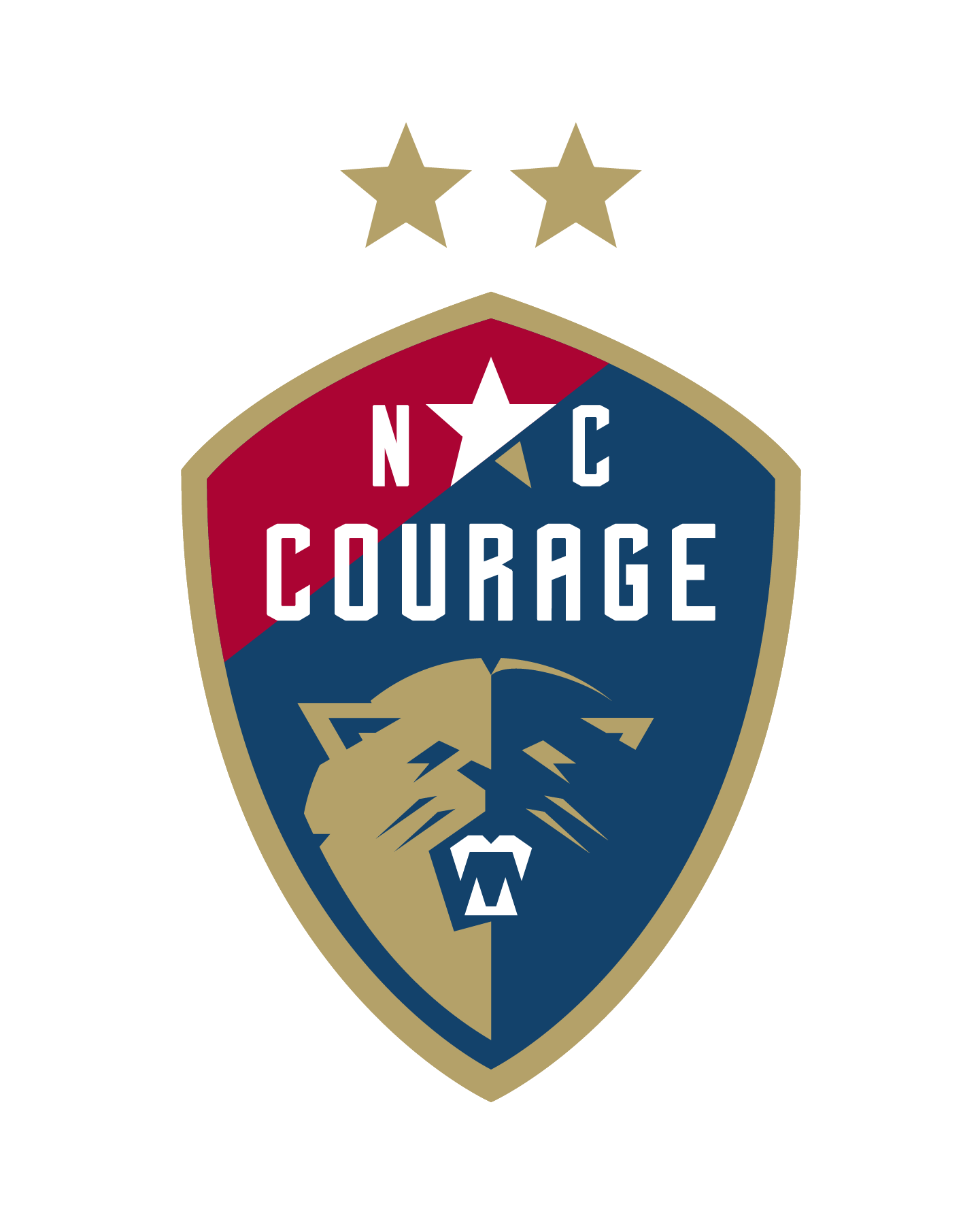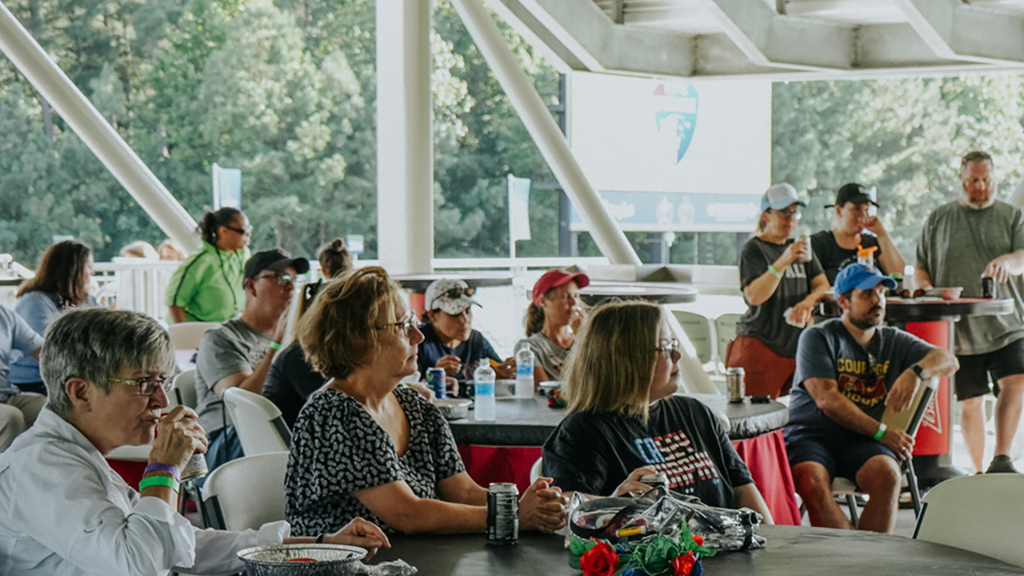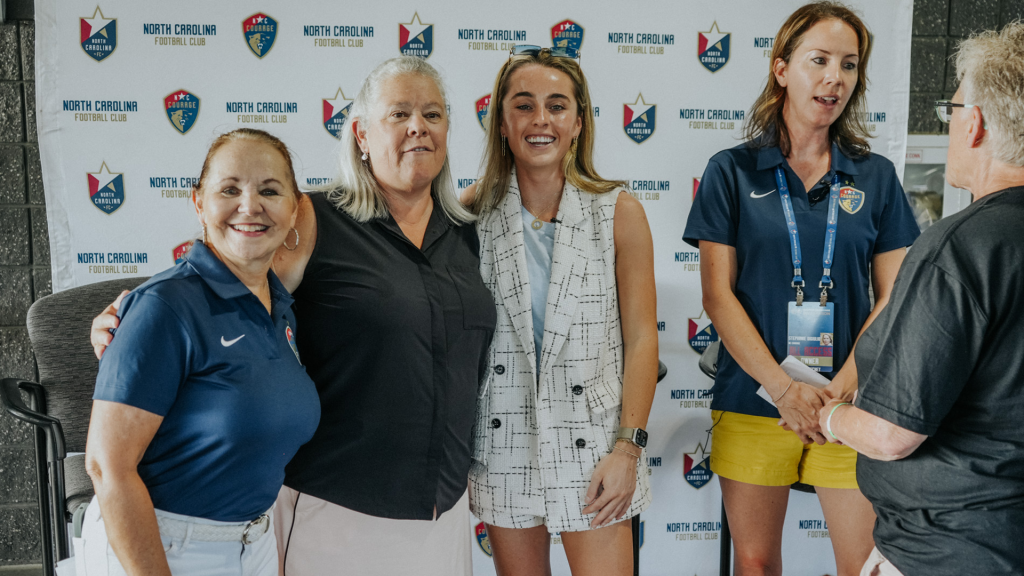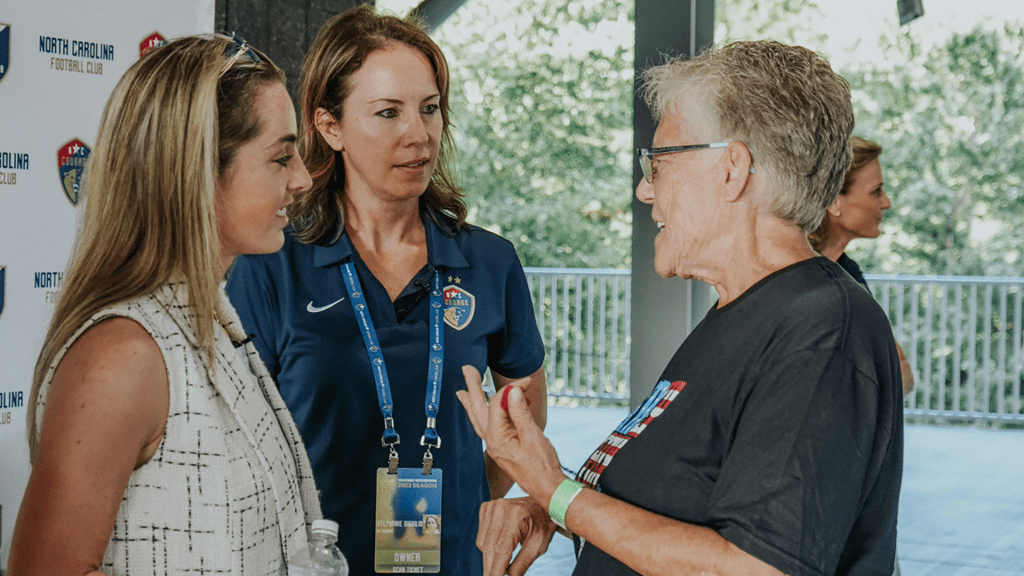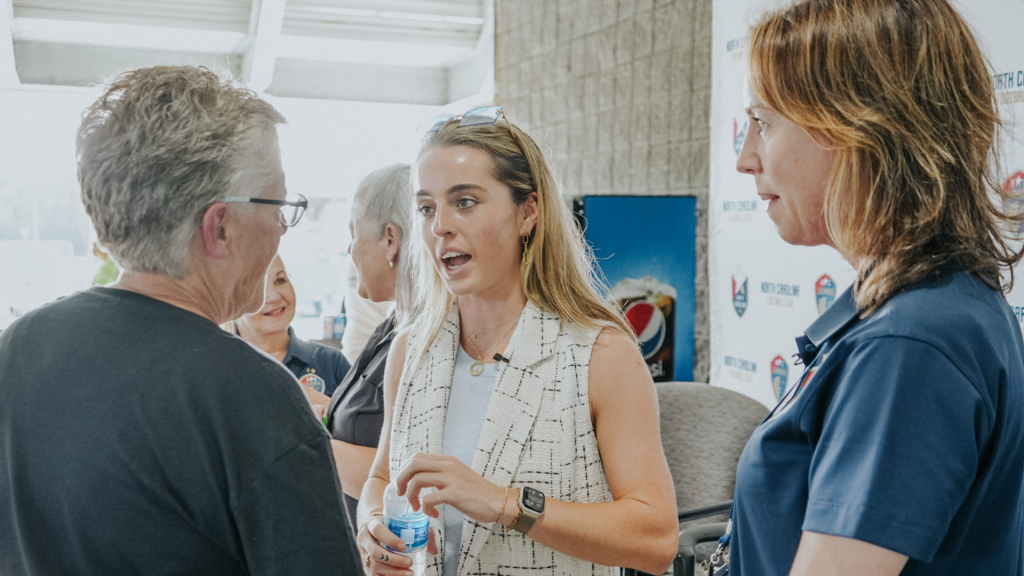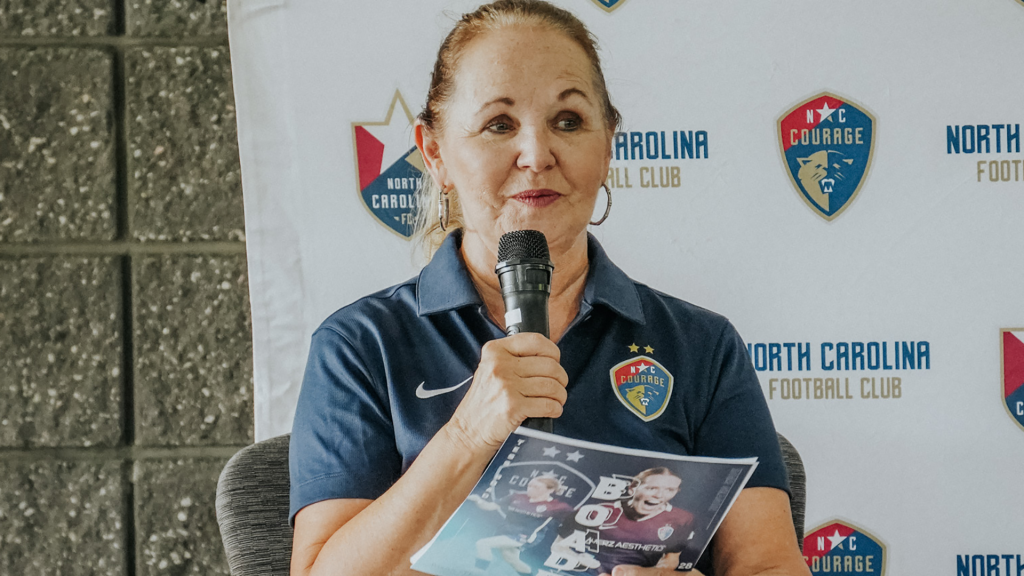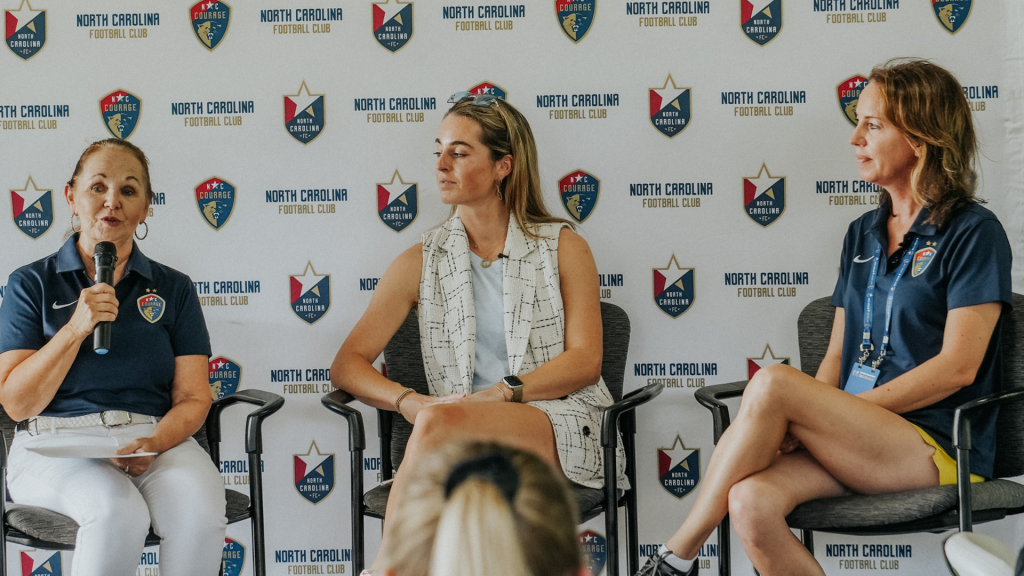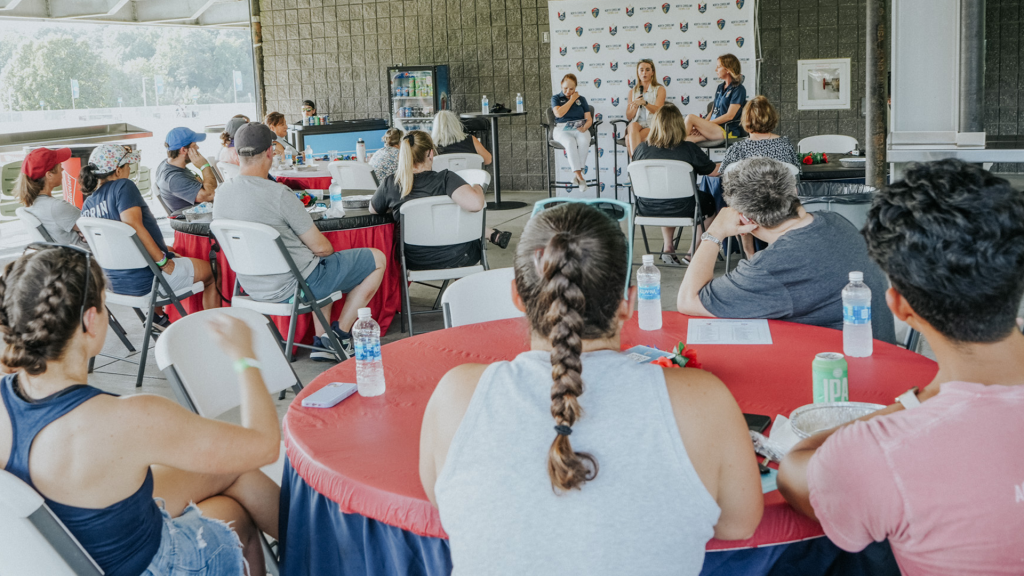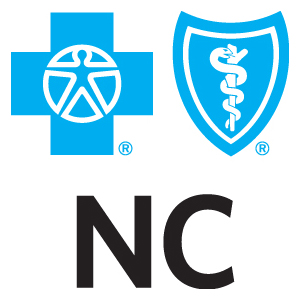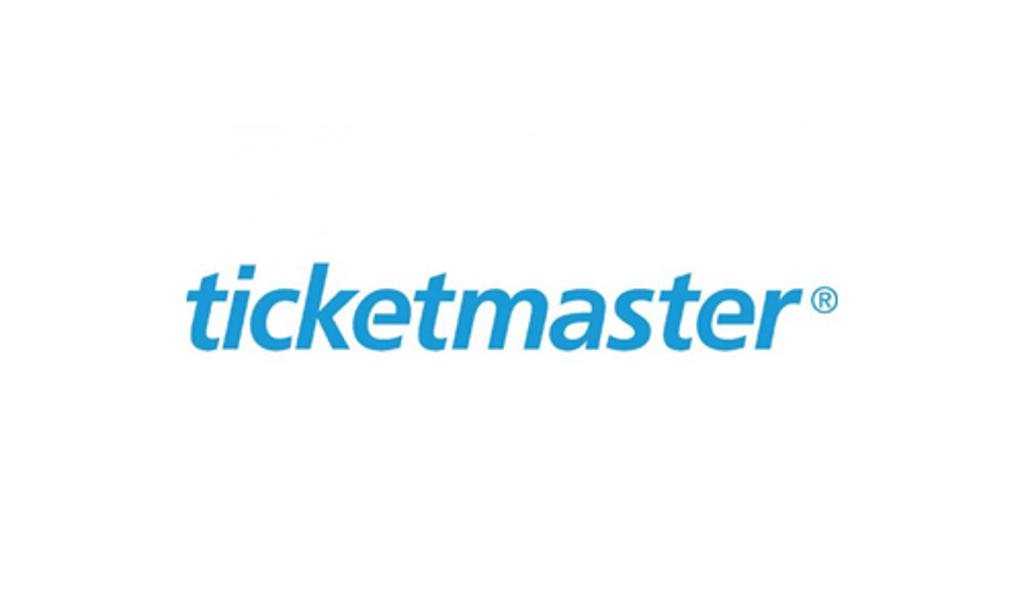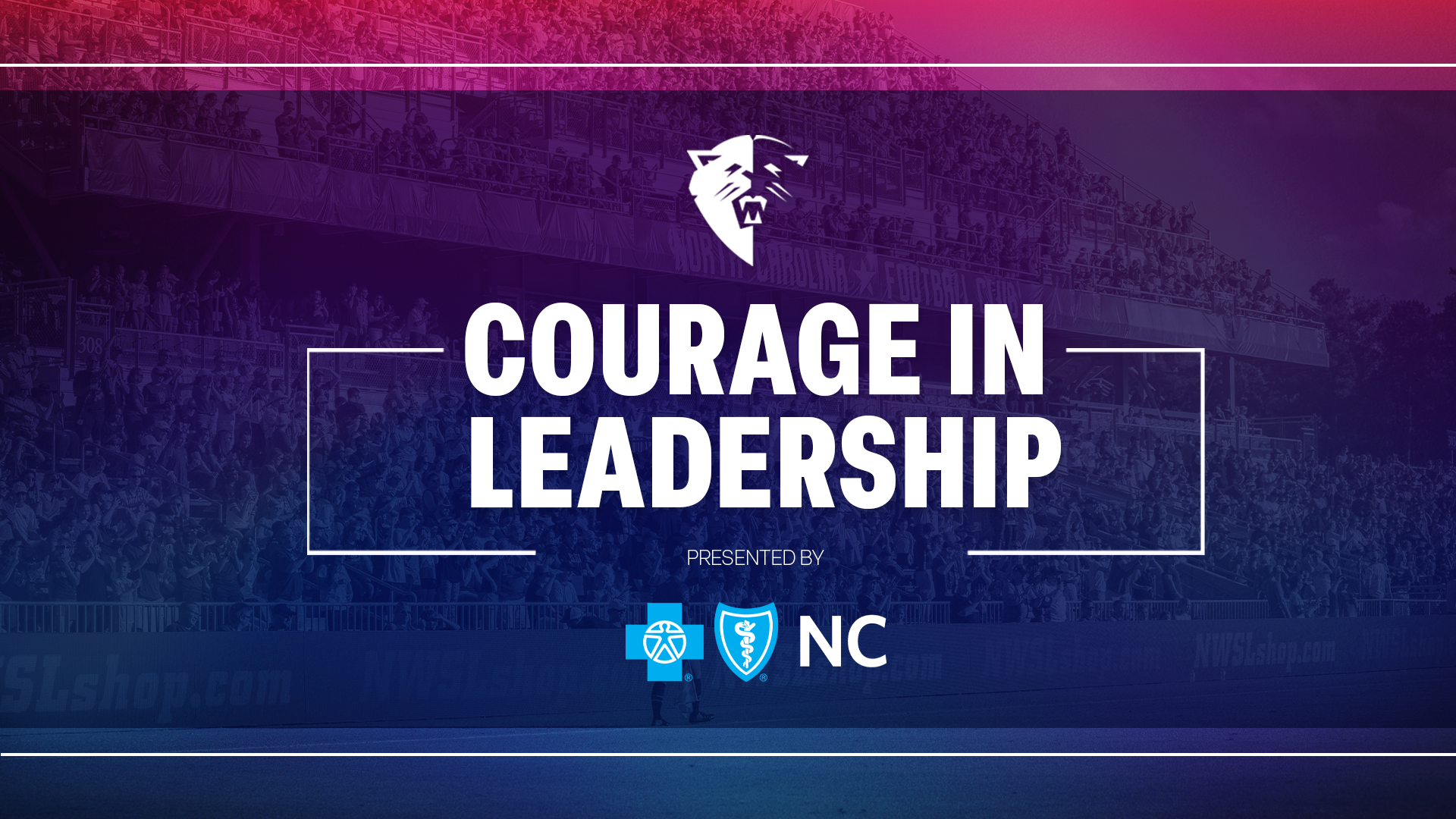
The North Carolina Football Club announced a multi-year strategic partnership with Blue Cross NC. The club will spearhead a program entitled ‘Courage in Leadership,’ which includes video series highlighting North Carolina FC Youth players, North Carolina Courage players, and leading female executives from the Triangle, with the objective of celebrating women in leadership positions, in the community, and around the state. The series will also aim to embrace and grow gender diversity in both business leadership and in athletics.
BUSINESS OF WOMEN LUNCHEON
On May 18, we hosted a Business of Women luncheon at WakeMed Soccer Park. In honor of Mental Health Awareness month, a mental health panel was held with NC Courage forward Millie Farrow and Dr. Ish Bhalla, medical director of Behavioral Health Value Transformation at Blue Cross NC. Mille shared insights from her book “Brave Enough Not To Quit,” and complemented Dr. Ish’s experiences in his role working with numerous of folks within different fields.
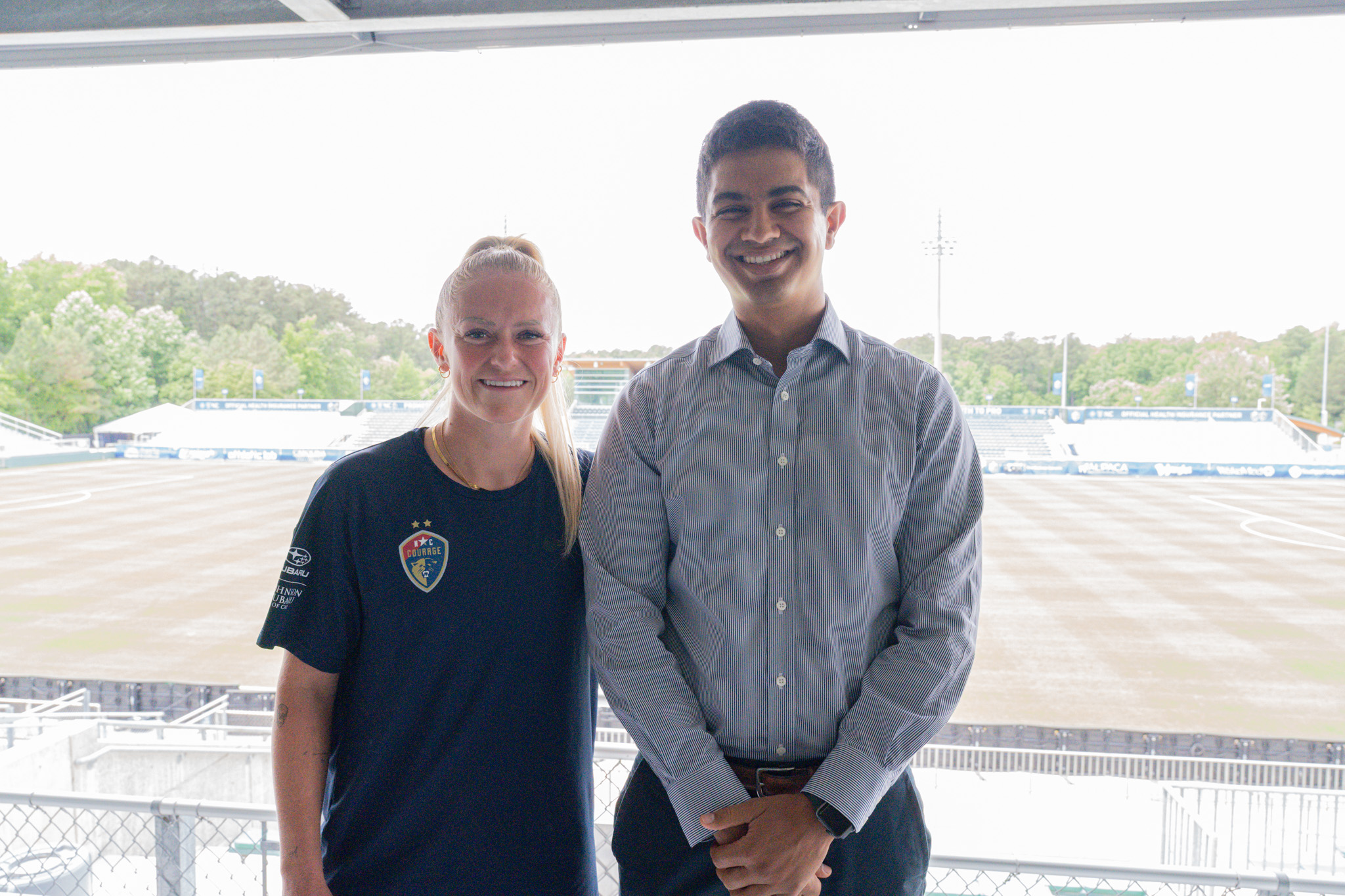
I feel it is incredibly important to talk about mental health, especially as I have a history of suffering with mental health issues throughout my life and soccer career. It is imperative that athletes like myself are able to be vulnerable and have a voice to help encourage the next generation to do the same.
Millie Farrow, NC Courage
May is mental health awareness month: Why do you feel is it important to talk about or highlight the importance of mental health?
Millie Farrow: I feel it is incredibly important to talk about mental health, especially as I have a history of suffering with mental health issues throughout my life and soccer career. It is imperative that athletes like myself are able to be vulnerable and have a voice to help encourage the next generation to do the same. Being able to share experiences and difficulties is one of the biggest strengths there is, you never know who you may be helping and you never know who else it will resonate with.
Dr. Ish Bhalla: About a quarter of people have mental health treatment needs, but less than 10% of people actually get treatment. This is a shame because mental health treatment works – whether it be with psychotherapy or medications. People suffer from diseases like anxiety and depression which can have impacts on their physical health, work, family, and ability to function. Stigma and a lack of understanding of behavioral health conditions are some of the most important barriers we can overcome to get people into much needed treatment. Mental health awareness month is a great way to help educate the public about the importance of taking care of mental health.
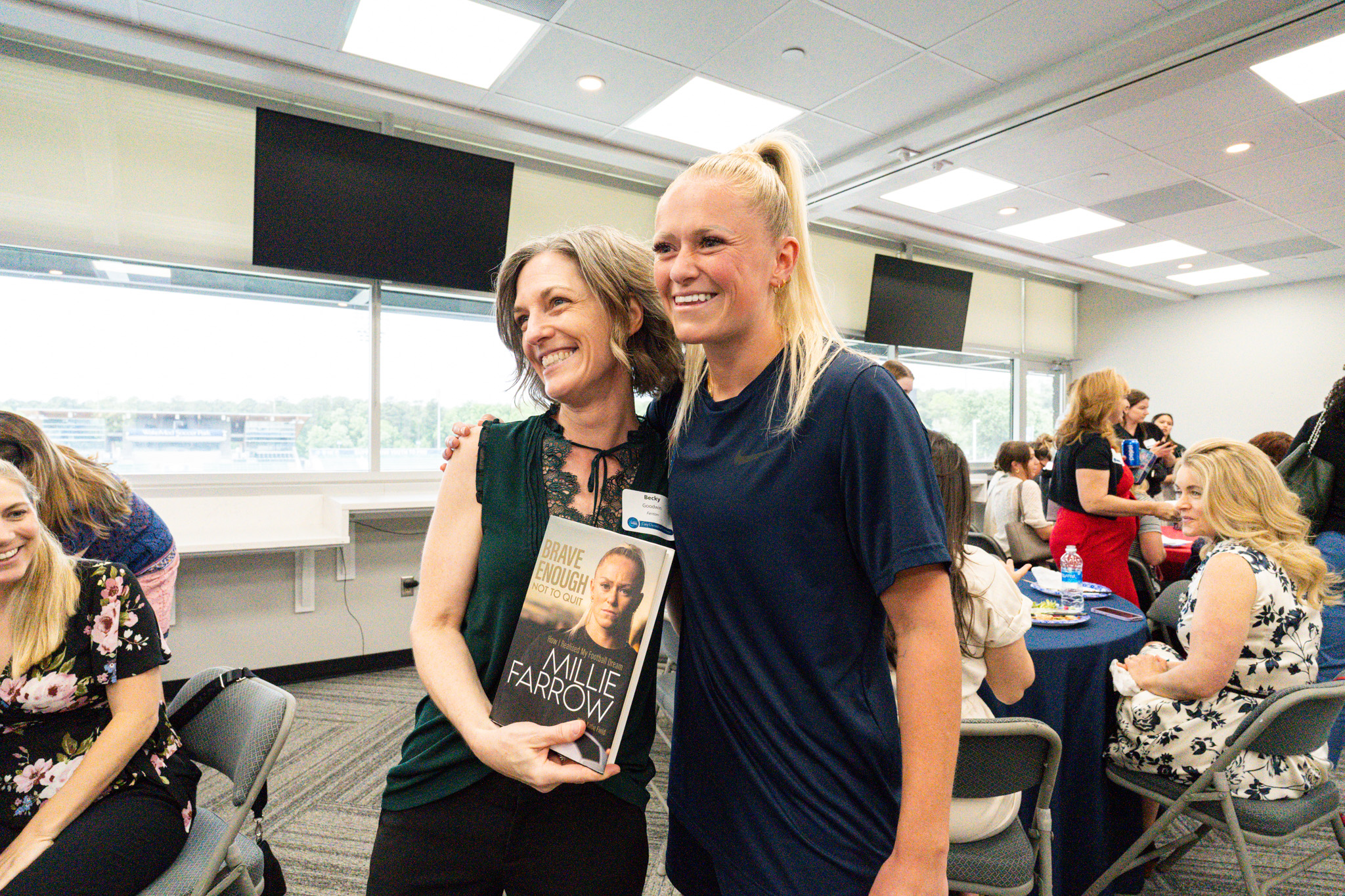
In your book you talk a lot about your experience with mental health as an athlete. What motivated you to write the book? Why was it important for you to share your experience?
Millie Farrow: What motivated me to write the book was the pain and struggle that I went through. The story behind putting everything you possibly can into trying to achieve something and sacrificing a lot along the way. By the time I was 21 I had already had many serious injuries and I struggled severely with my mental health. This is when I decided I wanted to help people – people who may be going through similar situations and don’t feel they can seek help. I want to give the reader hope that no matter what adversity they may be going through they can still continue to strive towards what they want to achieve. I think the importance of sharing my experience was made clear to me when the book was released. The number of messages I received from people thanking me and sharing their experiences truly made me feel like I made the right decision to be vulnerable and release the book.
What would you say you’ve seen to be the biggest difference when discussing or reviewing mental health in athlete’s vs non athletes? What about women vs men?
Dr. Ish Bhalla: Athletes are just like everyone else in that they can suffer from mental illness including anxiety, depression, obsessive compulsive disorders, etc. Athletes at the elite or professional level have specific challenges that can affect their mental health, including travel schedules leading to fatigue and insomnia, being away from family support systems, and the stress of needing to operate at a high level consistently. It is important for team managers to recognize these challenges and proactively address them.
Women statistically have higher rates of depression and anxiety, while substance use disorders are more commonly diagnosed with substance use disorders. Medications can have different affects for men and women, and hormones can play a big part in the presentation of mental illness in men and women.
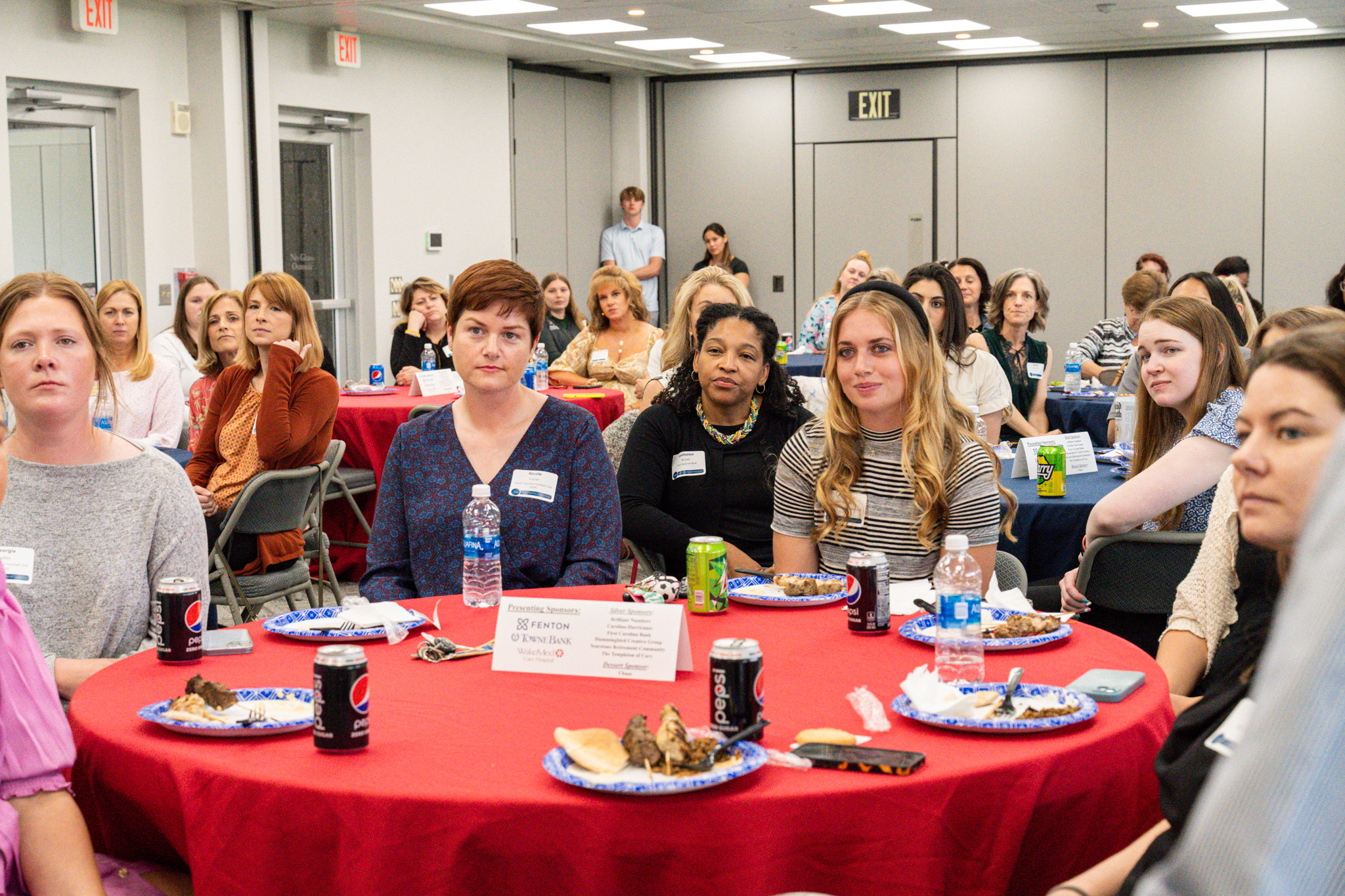
I think it’s important to pay attention to signals your mind and body send letting you know that you’re in a state of high anxiety and stress. It is important to recognize these signals ahead of time, before you let those feelings lead to bad decisions that can affect your work performance or family relationships.
Dr. Ish Bhalla,
Medical Director of Behavioral Health Value Transformation at Blue Cross and Blue Shield of North Carolina
BOMBSHELL BEER COMPANY
On June 14, fans joined us in Holly Springs for our North Carolina Courage vs. Washington Spirit watch party at Bombshell Beer Company. NC Courage midfielder Emily Gray sat down with Ellen Joyner, co-owner of Bombshell Beer Company, to learn about how she brought Bombshell to life. Emily and Ellen discussed how a local, women-owned business supporting the only professional women’s team in North Carolina builds a strong sense of community and leadership.
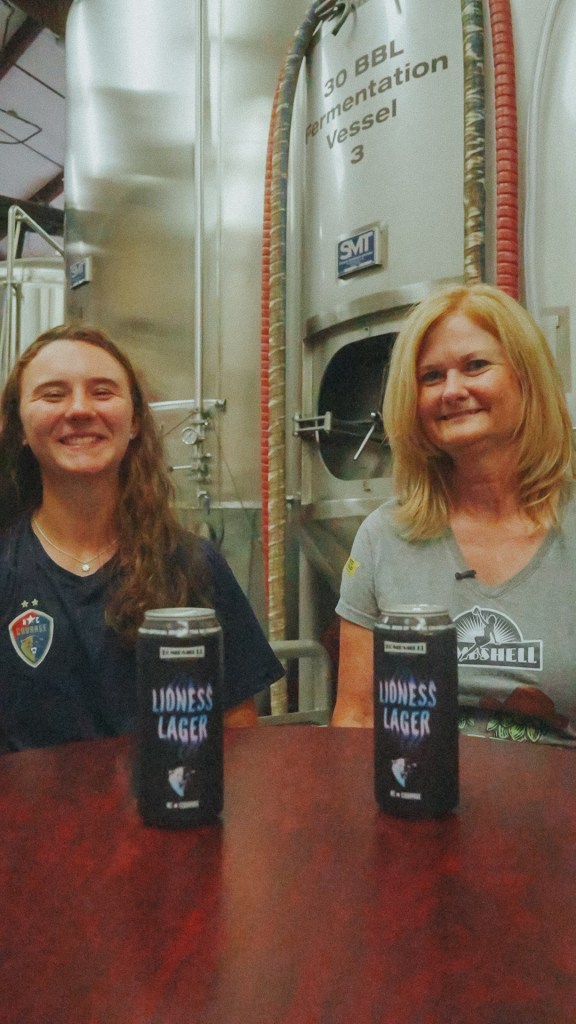
Emily Gray, NC Courage“To have the support from a local woman-owned brewery is phenomenal. Woman empowering woman is a no brainer and we cannot be more thankful for their partnership. The co-branded beer helps us both grow our brands in the community.”
Why was it important to you to have an all-woman owned and operated business?
Ellen Joyner: I don’t know that it was our original intention to open a women owned brewery, but once we started putting things together, we realized there weren’t but five woman-owned breweries in America at the time that we could find. It was a very male dominated industry, and that is when we realized we had something that was not common. It was an unexpected surprise to find women in the industry, thus a Bombshell. We thought we could bring something different to the scene.
Why was it important for Bombshell to support the only women’s professional team in North Carolina, but specifically here in Raleigh?
Ellen Joyner: It comes back to Bombshell being the first 100% women owned and operated brewery in North Carolina, and the NC Courage being the only women’s professional sports team in the state. They are located just down the road, and locals know both of us. I grew up playing soccer, and have followed the great players that have played at the local universities, and the NC Courage.
Emily Gray: To have the support from a local woman-owned brewery is phenomenal. Woman empowering woman is a no brainer and we cannot be more thankful for their partnership. The co-branded beer helps us both grow our brands in the community.
“Our relationship with the NC Courage started in early 2023. We were the first woman owned brewery in the state, and it made for a perfect match to do a beer for the only women’s professional sports team in the state.”
Ellen Joyner, Bombshell Beer Company
Co-Founder, President, Head Brewer

What does “Courage in Leadership” mean to you?
Ellen Joyner: “Courage in Leadership” means a lot of things. It takes courage to be an entrepreneur, to go out and do something that so few people, let alone women, have done – like opening a brewery. You need to empower your people, and lead by example. You cannot be shy. You have to get up and have the courage to power through the worst of times. Trust me, there are bad days at a brewery, but having a great supporting team in our employee’s helps you to get to the beer at the end of the day.
Emily Gray: “Courage in Leadership” means taking on the responsibility to empower others while breaking your own barriers toward success. I’ve experienced many great examples of leadership in my life so far. For me, the examples that stick out are when the leader thinks beyond themselves and cultivates strong relationships with others and instills trust, accountability, and passion within a group.
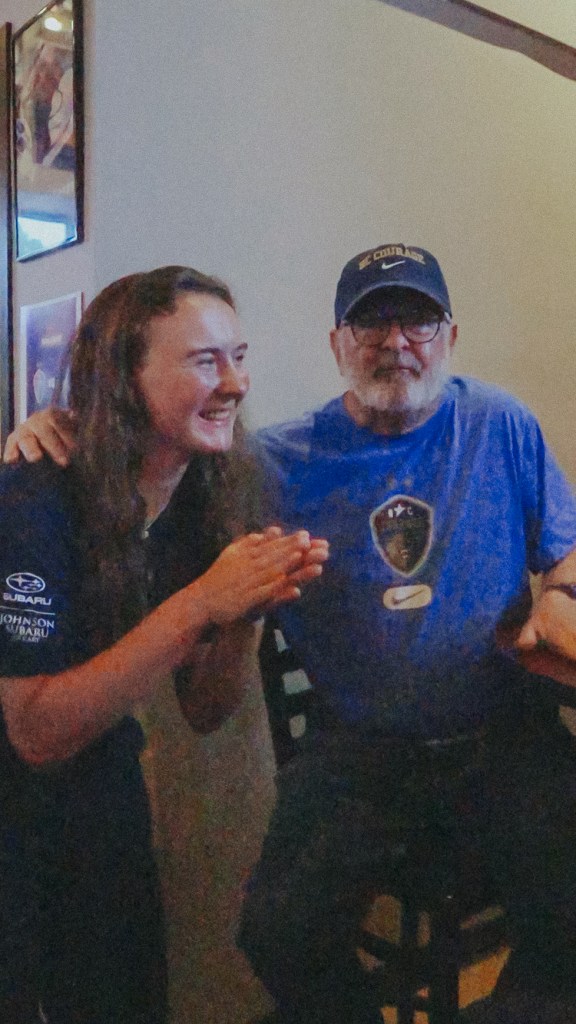
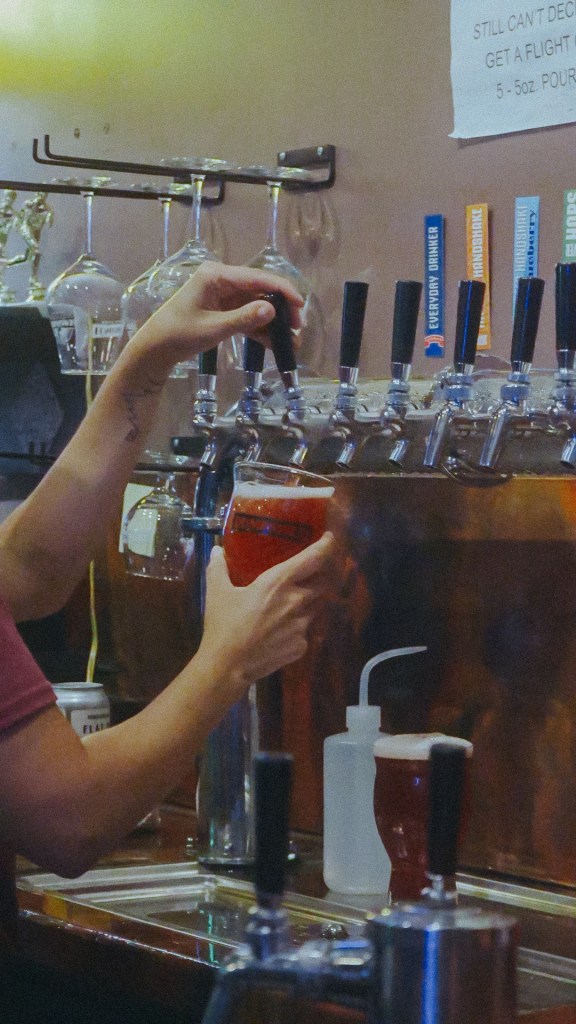
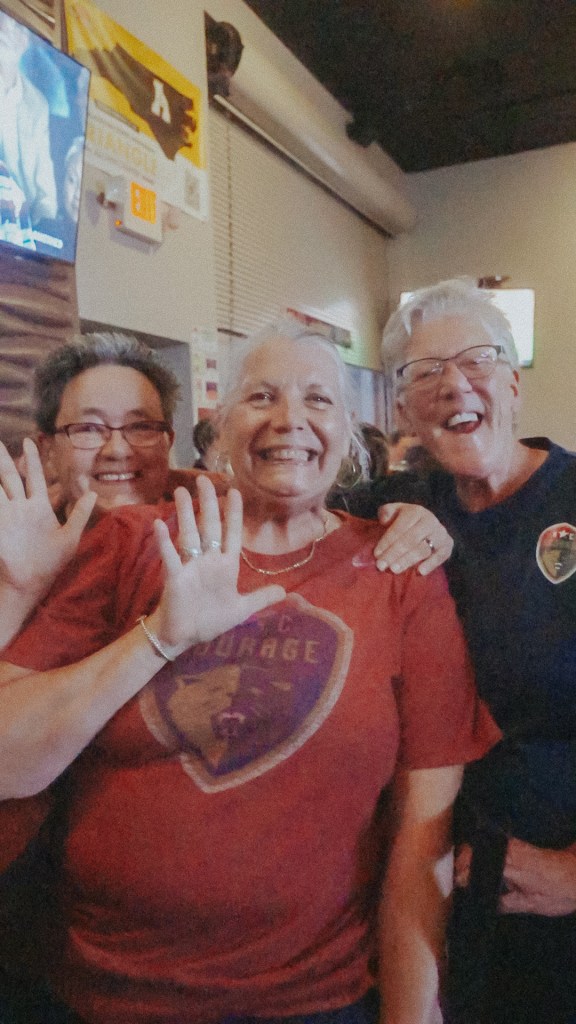
INVESTING IN WOMEN’S SPORTS PANEL
On July 29 at WakeMed Soccer Park, we hosted a pregame panel about the importance of investing in women’s sports at all levels. Billie Redmond lead the conversation with NC Courage investor Stephanie DiGiulio and UNC women’s field hockey head coach Erin Matson. With the FIFA Women’s World Cup shattering TV viewership records in the USA, there’s never been a more exciting time to support female athletes and women’s sports teams – especially our very own NC Courage athletes.
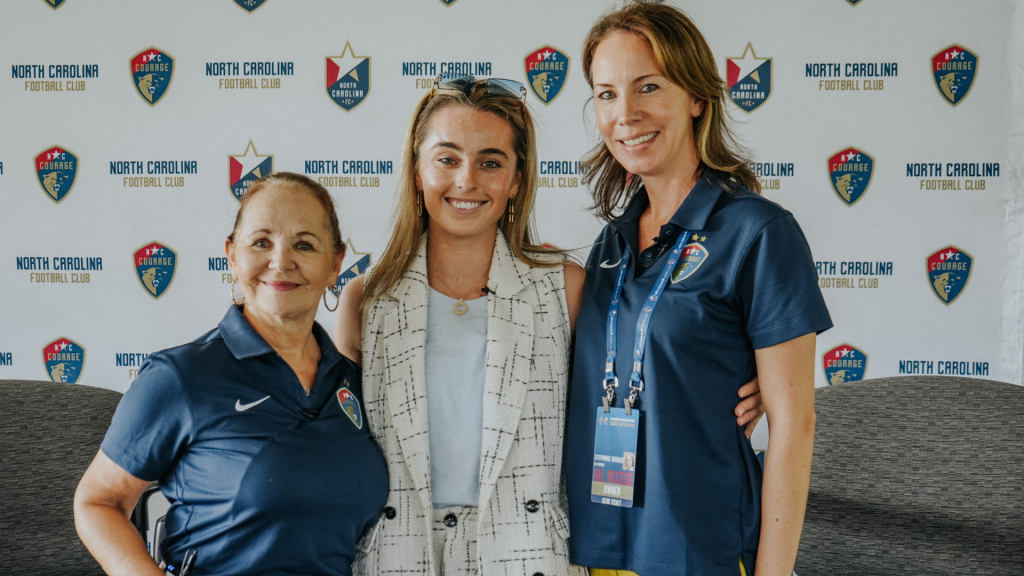
Along my entire journey, each moment has shaped my mindset for what came next. As young player, I was part of the top club in the nation, WC Eagles. We took every part of development extremely seriously, and that set me up for the environment and expectations at the University of North Carolina My experiences as a player at UNC, where success is expected and standards are very high, set me up for the role in which I now serve our university. As someone who has benefited so much from women’s sports and now holds a leadership role, I will continue to be an advocate for growth and investment like so many were for me.
– Erin Matson
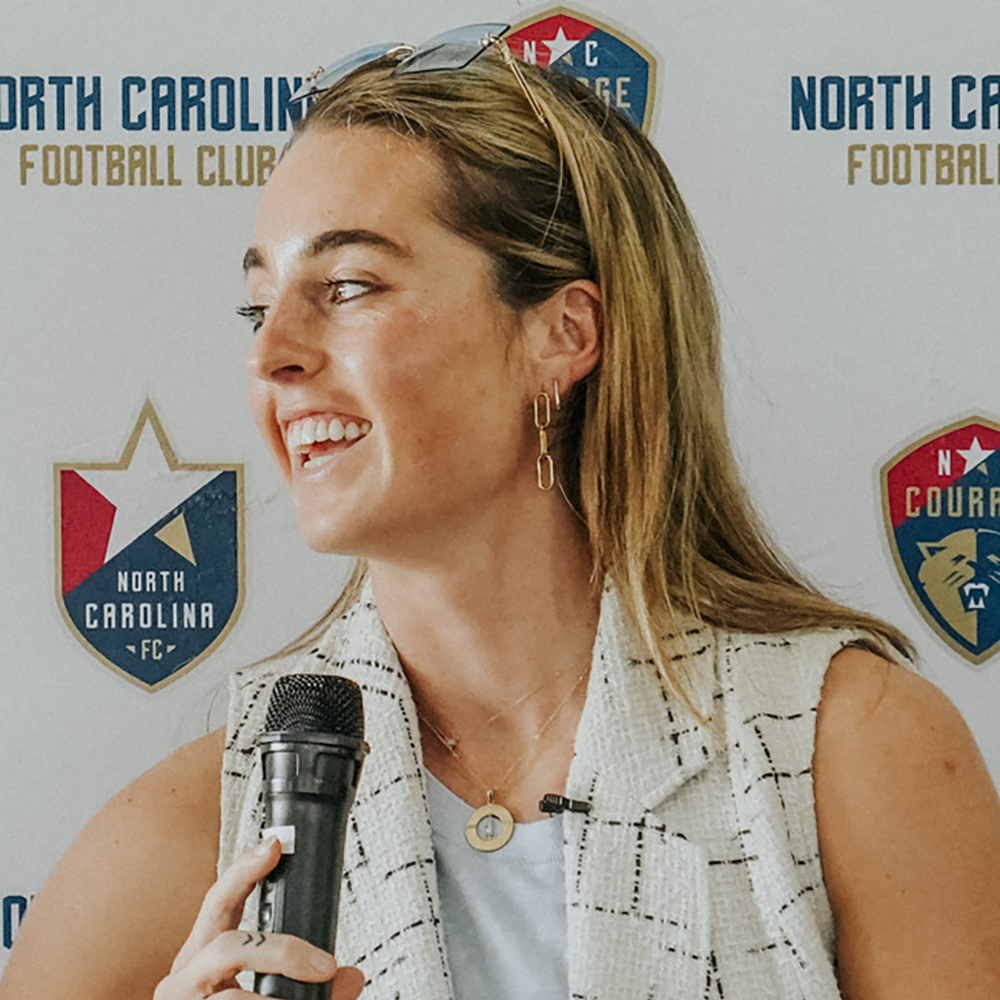
What are the key components of greater investment in women’s sports?
Erin Matson: Investment is crucial to opportunity. We need the physical infrastructure, the operational support, and the community awareness all in place to really be able to take advantage of opportunities. And each of those things requires investment of time, funds, and effort.
With physical infrastructure, there are some areas where we can be innovative and be sure we’re maximizing the investment we do have. For example, field hockey is played on a unique, water-based surface that’s expensive both financially and in terms of natural resources. But the Hockey Federation (FIH) is looking into a non-water-based pitch that would expand the number of places where the sport could be played at a high level.
Regarding operational support, there are the actions and people behind the scenes who are the extra 1%, yet who are often underrated: facility maintenance, program support staff, marketing and media efforts, fundraising, medical staff, and so much more.
Community support really closes the loop. A more engaged fanbase usually means more donations and financial support, which means more investment in the physical and operational infrastructure, increasing chances of success, which propels the cycle yet again. As we see all of this work together, we see overall growth skyrocket.
Stephanie: The key components are believing in girls and women and providing for them. Believing in girls and women as stellar athletes is a must. We are getting there as a collective culture but there is more to be done. We must believe wholeheartedly that women are just as capable as men at competing at all levels. Hearing comments about how men’s sports were “just more fun to watch” was part of backyard BBQ banter amongst the dads in my neighborhood growing up. In fact, there were several sports available for boys but not girls in New Jersey in the 1980s. That has changed; in fact, I can’t think of a sport that girls can’t sign up to play that boys can. That is progress, no doubt.
Providing top-notch resources would allow girls and women to excel in their chosen sport more easily. They deserve the best gear, cutting-edge facilities, the best coaches, etc. If we collectively work towards ensuring that female athletes are as celebrated, highlighted, televised, and sponsored as their male counterparts … well, the outcome would be ideal.
How can the NC Courage, as the ONLY women’s professional sports team in NC AND a winner on the national stage, drive more engagement by our communities, corporations, and sponsors to help the sports leagues thrive?
Erin Matson: As a proven winner, the Courage are already in a position to leverage a winning culture and grow their fanbase. Obviously the Triangle area is a huge hotbed for soccer, and it’s so valuable to have this example for kids. Young girls can look to Courage players as role models. And, at the same time, there is that value for the community and sponsors to continue investing as well. It’s a cycle that begins with winning, and it will be exciting to continue supporting the Courage while they continue to grow and thrive.
Stephanie DiGiulio: I think the key to more community engagement starts with connection. When the players are connected to each other, success is more likely. When fans feel connected to the team and the sport, more of them emerge. I think the next step is connection to the larger community via a non-profit. I know the front office partners with many non-profits throughout a given season and I love that, but what causes do the players care about personally? I hope to try to explore that next season with the team. The impact on a local non-profit can be game changing for all involved. Corporations and sponsors could organically emerge as partners from such an authentic connection and that would be cool to see.
What does Courage in Leadership mean to you?
Erin Matson: In my mind, the two are inextricably linked. Leadership requires courage. Sometimes you’ve got a vision that’s ahead of the mainstream and it’s about making others see – and believe in – that vision. Courage allows you to continue to lead, regardless of the circumstances, while also inspiring others to be courageous in their own journeys.
Stephanie DiGiulio: Courage is what it takes to refuse to quit. Solid leaders remind their team that accepting defeat should not be done without leaving it all on the field, and they can extract that drive from players. In the end, even when forced to face defeat, it takes courage. I honestly think NC Courage is the perfect name for our pro women’s soccer team.
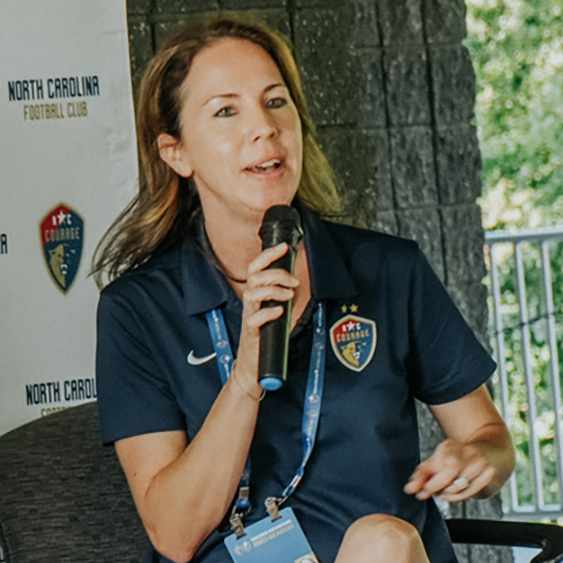
Today, my daughter Amber is a 13-year-old youth soccer player in the NCFC youth program and the talent she displays blows my mind. These kids practice more than any athlete I ever knew growing up and they improve so quickly. A huge part of my decision to invest in the NC Courage was me being inspired by her. I wanted to send the message to her and her teammates at a very early age that adults are working on all fronts to bring you more opportunities, and you deserve them! You play the game you love, and I will help fuel the fire that creates more opportunity. We attend Courage games regularly, and to have these amazing female athletes right here in Cary inspires the local youth players (and all the fans). Our professional players work so hard to do what they do, and you “feel” that when you’re at the stadium watching. More expansion teams are coming to the NWSL and programs that feed the league will undoubtedly improve. It’s an amazing ripple effect I hope will continue to grow.
– Stephanie DiGiulio
CAMP COURAGE
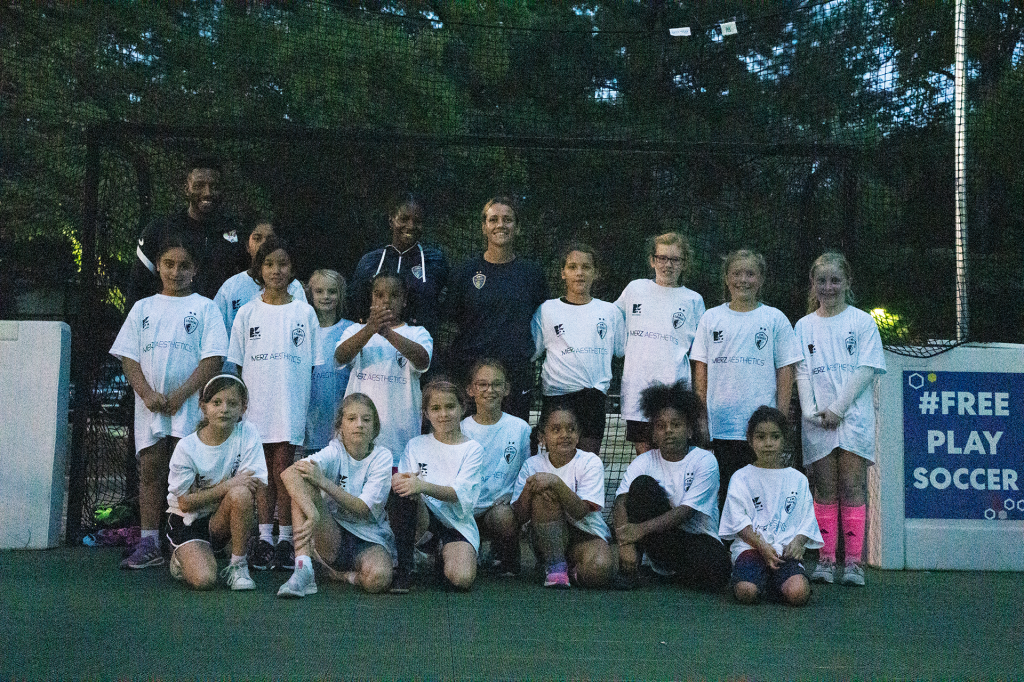
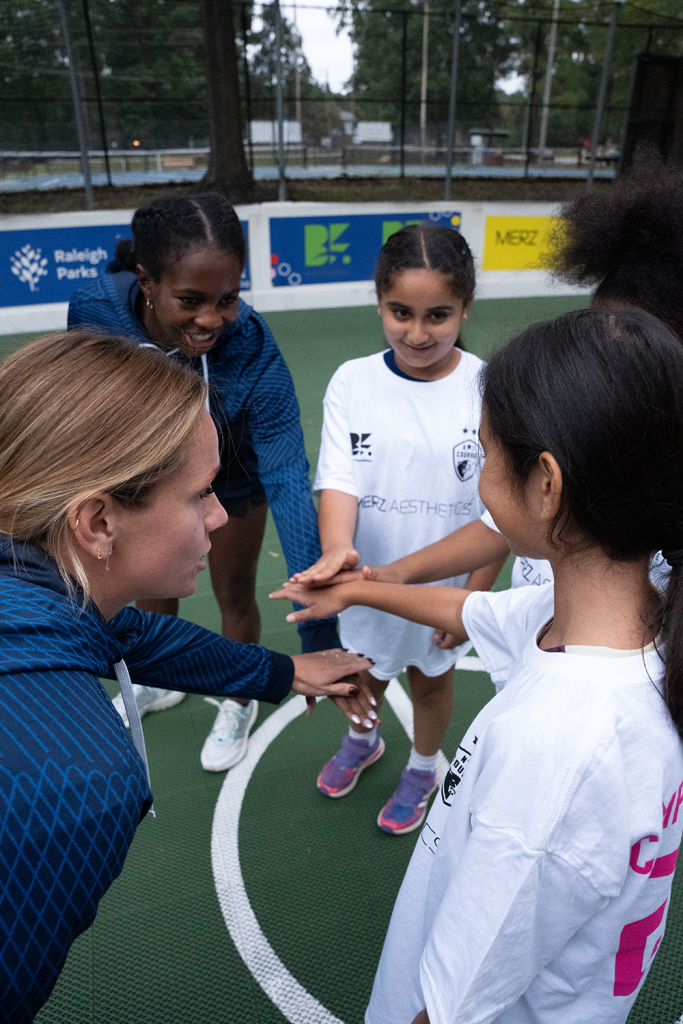
Meredith Speck, North Carolina Courage midfielder
How important is it for our club to provide free access to soccer for girls in our community?
I think it’s incredibly important to provide as much access to all children, but especially girls. I think that the easier it is for kids to be able to participate in sport then the more likely it is that they will, and I think that something like this is pretty incredible. The more accessible and the more they see kids playing makes it an inviting experience. I think that often, at least when I was younger, the less constructed a soccer session was the more fun I had. I played a lot in the park with my friends or on my street, so I think something like this is super inviting to a young kid to just have fun and let loose a little.
What advice do you give to young kids who are just starting to play the game?
Enjoy it. I have made such good friends through the sport, and I have had such wonderful experiences and I think the more you’re able to just enjoy the moment and not worry about being good or bad, just kind of focus on what feels natural and right. I think that’s the best advice I could give kids.
What does courage in leadership mean to you?
I think having courage in leadership means being willing to take a risk a maybe go against the norm, leading with compassion and knowing that sometimes the right thing is also the hard thing. That’s what leading with courage means to me.
Troy Smith, Director, Worthdale Park
What has hosting Camp Courage clinics at your park meant to you?
To have the futsal pitch here and have the NC Courage come out and offer free clinics throughout the summer has especially been great because some of the kids are not used to soccer or used to futsal. Some of the kids didn’t want to try it in the beginning but once they got here, I think they had a great time and it was something new for them.
What does Courage in leadership mean to you?
Courage means trying something new. You have to step out sometimes and take chances. You’ve got to have courage to do that. Leadership is huge, you want people to follow you so you always have to do the right things and make the best decisions you can make for whoever you’re trying to lead.
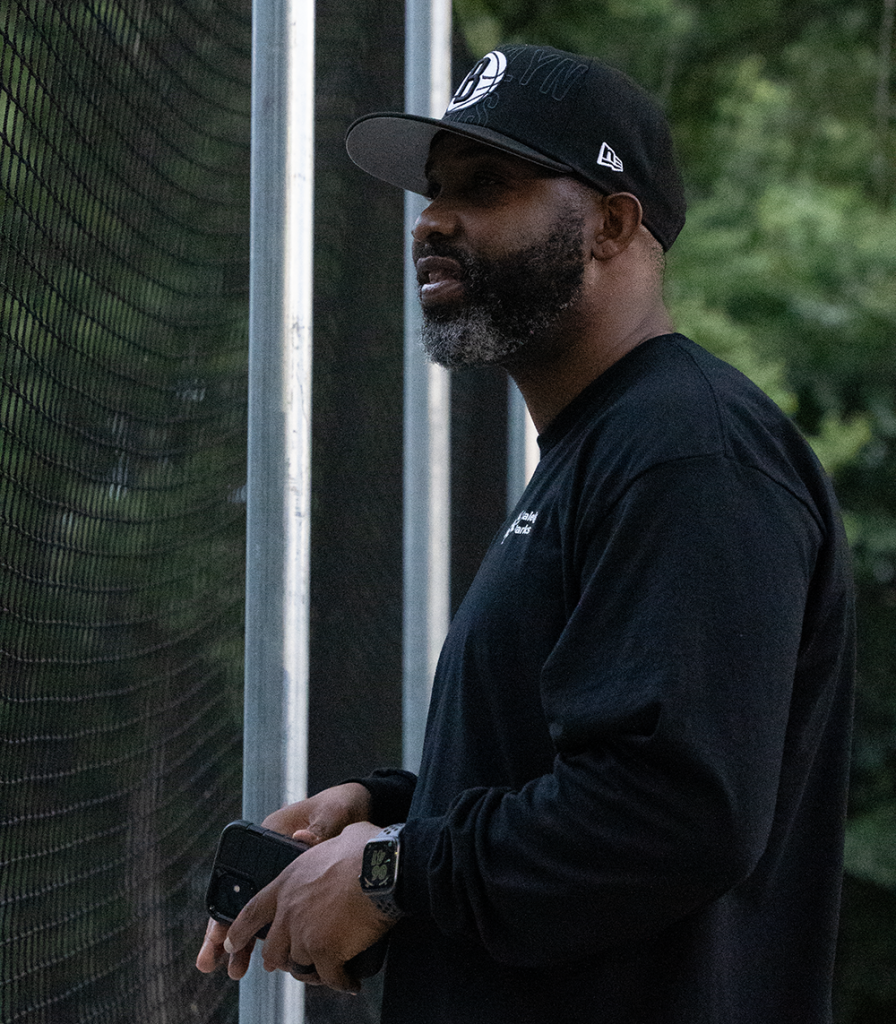
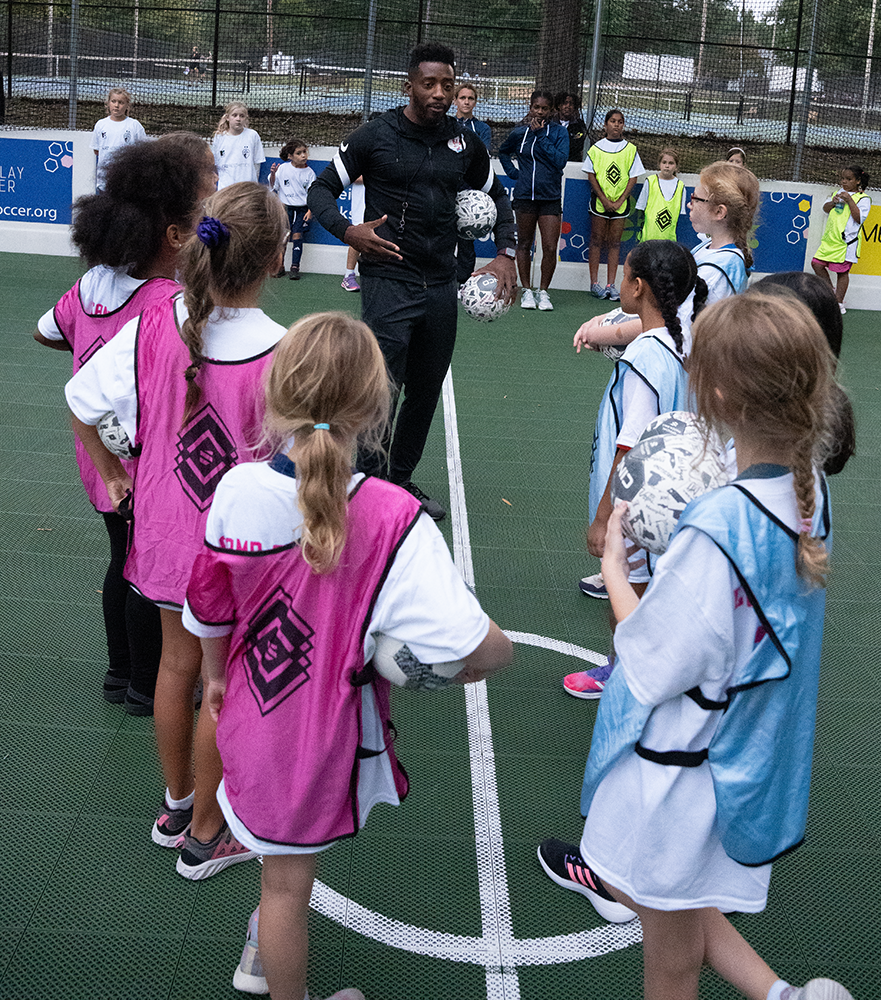
Luis Paiva, Director of Más Futsal
Why are we here today?
We’re here to work with kids and empower them by using sports to help them to be whatever they want to be.
What is the difference between futsal and soccer?
Futsal is a gateway to get into soccer. It’s smaller, it makes the kids be on the ball and make decisions because the amount of space is limited.
Why is it important for a soccer player to be good at futsal?
It’s important because of the decision-making aspect. You make decisions faster in a confined space so as you get older and you transform and translate that into soccer, the amount of space changes but you also change physically so the decision making remains the same.
What does courage in leadership mean to you?
Empowerment. As adults teaching kids, you sometimes restrict them, or they feel restricted or scared to make mistakes; but empowering them to make mistakes is a great way for them to learn not only on the sports side but in their social life as well.
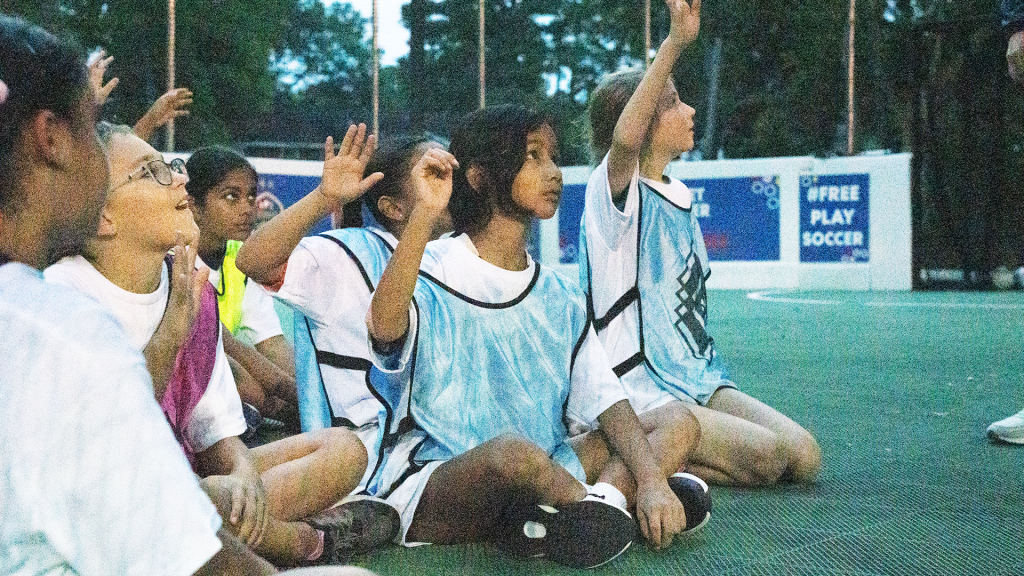
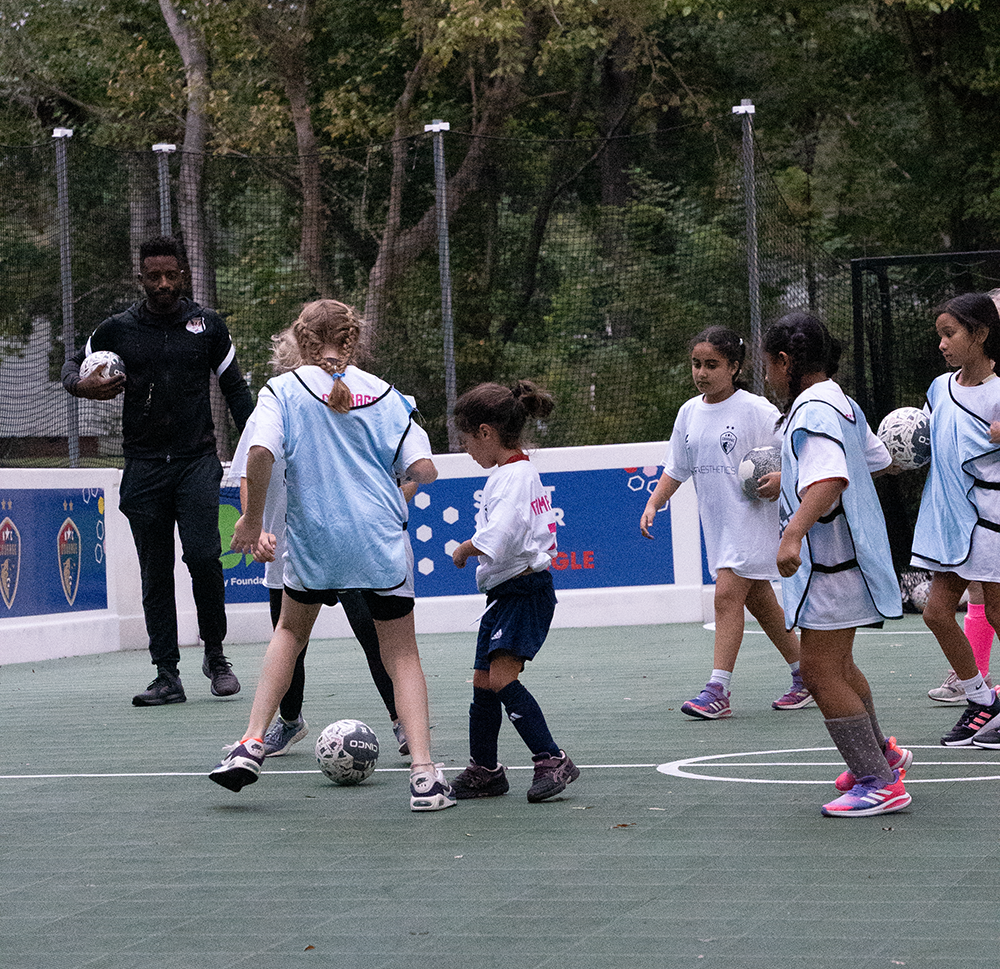
Clinic Participants
What does courage mean to you?
- Participant 1: Courage means to me to try your best even if something hurts you to help you get through it.
- Participant 2: People are cheering you on and you’re trying your best and to never give up.
- Participant 3: Bravery.
- Participant 4: Work together and try your best.

The first installment of Courage in Leadership features CEO of Marbles Kids Museum Sally Edwards, NC Courage 1st Round Draft Pick Emily Gray, and high school senior of North Carolina FC Youth, Ashley McFarland defining courage in leadership.
The second episode of Courage in Leadership continues the conversation with CEO of Marbles Kids Museum Sally Edwards, NC Courage 1st Round Draft Pick Emily Gray, and high school senior of North Carolina FC Youth, Ashley McFarland discussing their journeys and success.
The third episode of Courage in Leadership continues the conversation with Executive Vice President & Chief Marketing Officer Jennifer Chase, NC Courage Kiki Pickett, and high school senior of North Carolina FC Youth, Megan Setlack discussing moments of courage.
Part two of the conversation with Executive Vice President & Chief Marketing Officer Jennifer Chase, NC Courage Kiki Pickett, and high school senior of North Carolina FC Youth, Megan Setlack wraps up with conversations around leadership.
In Episode 5 of Courage in Leadership, we sit down with President & CEO of El Centro Hispano Inc Pilar Rocha-Goldberg, NC Courage forward Diana Ordoñez, and North Carolina FC Youth player Grace Gilmore to talk about courageous moments in their lives so far.
Our final episode of Courage in Leadership ends with President & CEO of El Centro Hispano Inc Pilar Rocha-Goldberg, NC Courage forward Diana Ordóñez, and North Carolina FC Youth player Grace Gilmore discussing different ways to be a leader.


















































































































































































































































